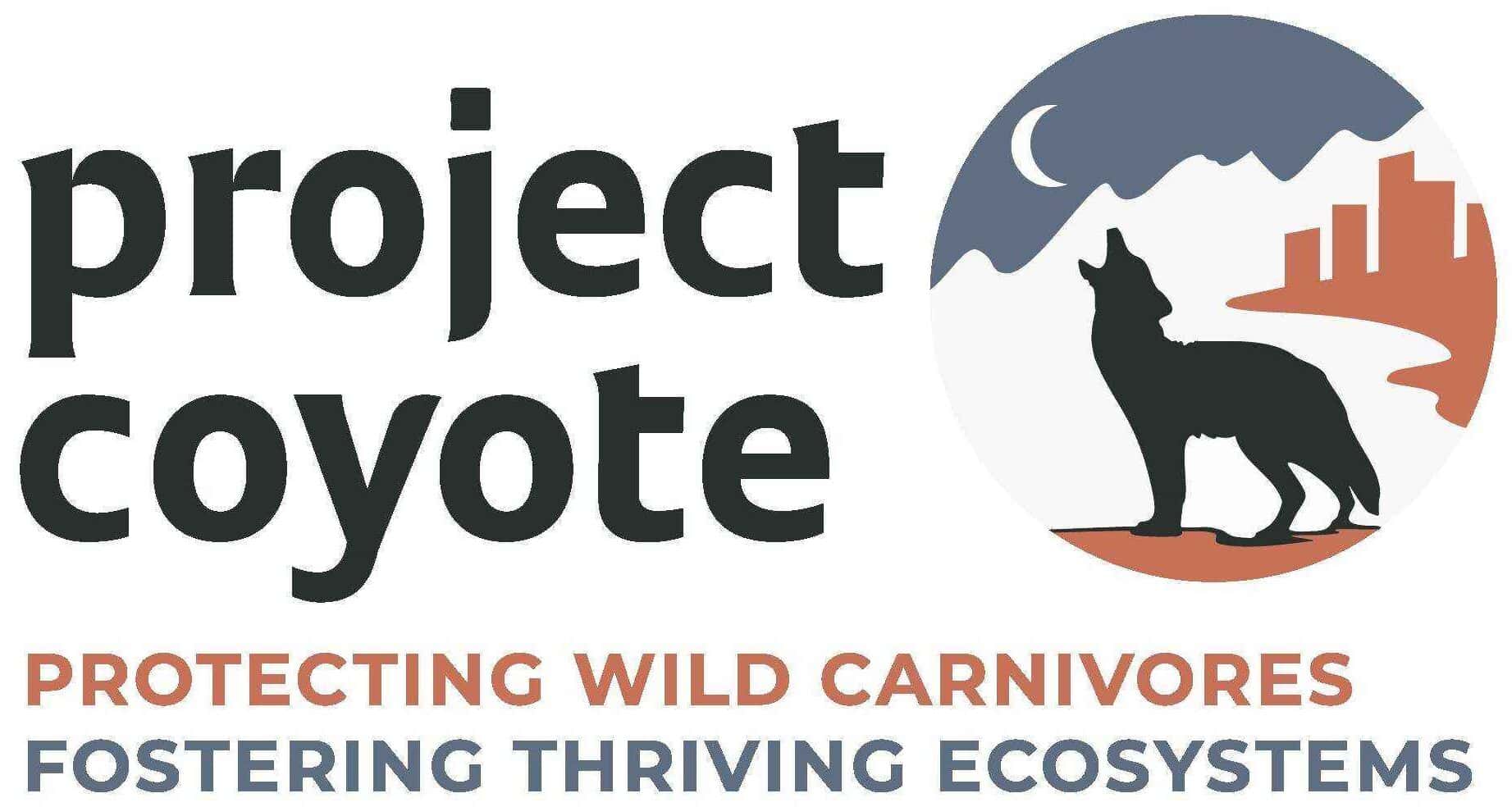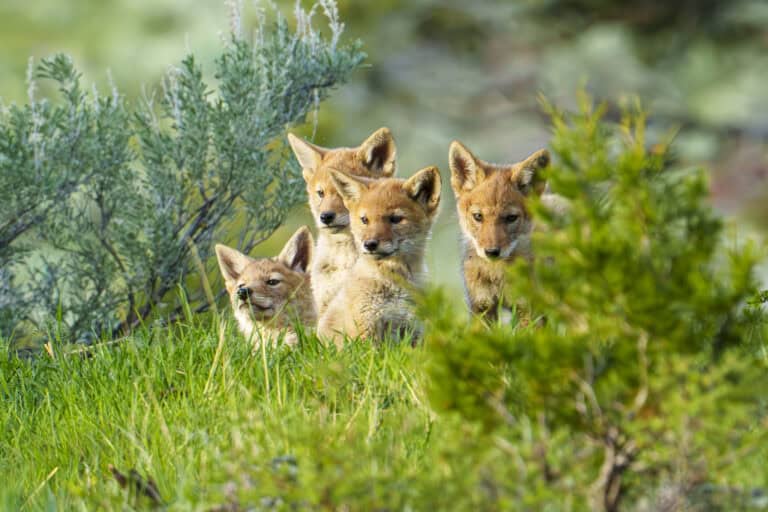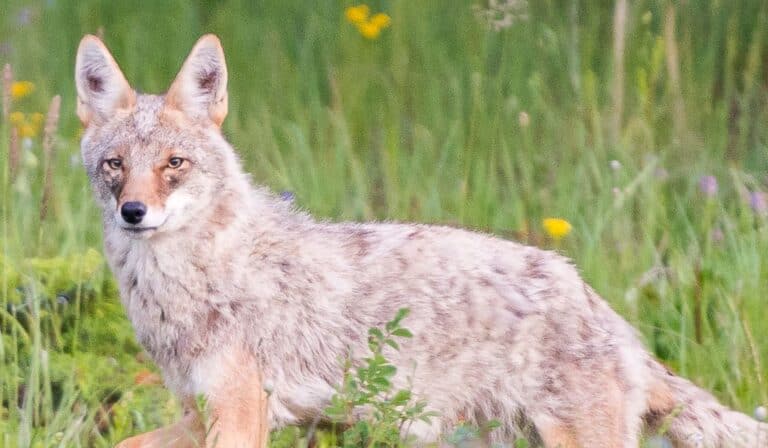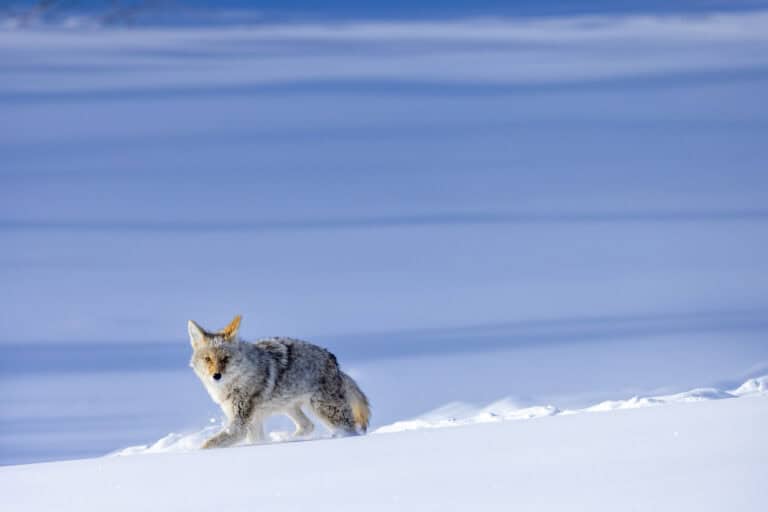Photo: Superior this week launched a model Coyote Coexistence Plan developed in partnership with national nonprofit Project Coyote. The plan aims to foster a suburban environment that humans and coyotes can share, and reduce negative encounters. (Roger L. Miller)
Superior in its history has no documented cases of coyote attacks against humans and no concrete cases of pets being taken by the area’s top grasslands predator.
Town leaders hope to keep it that way.
Superior this week launched a model Coyote Coexistence Plan developed in partnership with national nonprofit Project Coyote. The plan aims to foster a suburban environment that humans and coyotes can share, and reduce negative encounters.
The coexistence plan — the first of its kind for California-based Project Coyote — could become a national model.
“We’re working with several communities in California, and with Albuquerque (New Mexico), but nothing like the comprehensive educational component like Superior has,” said Ashley DeLaup, Project Coyote wildlife ecologist and Colorado representative.
“The Town of Superior is a trend-setter when it comes to advocating coexistence with urban wildlife.”
Since 2012, Superior has worked with Project Coyote to provide educational programs for residents and town staff, outlining times of day and year when coyotes are more prevalent, appropriate safety and hazing measures, and reasonable expectations living in coyote habitat.
“Depending on the time of year, town staff can get quite a few reports of coyotes on town land,” said Patrick Hammer, Superior’s Parks, Recreation and Open Space director. “Most of the other reports we get are from kids seeing coyotes walking to and from school. I think the very natural reaction is wanting to make sure that kids and pets and ourselves are safe.”
Hammer said the town wants to make sure frequent coyote sightings don’t turn into irrational fears or overreactions from residents.
“The top priority is human safety and creating a coexistence that isn’t driven by fear,” Hammer said. “The town several years back, in dealing with the growing issue of coyotes in urban areas, wanted to identify a contractor who could educate the staff and the community on coexistence. We didn’t have anybody on staff with the expertise to provide public outreach.”
That’s where DeLaup and Project Coyote came in.
“I’ve been coming up there about five to six times a year,” DeLaup said of her work in Superior. “We want (residents) to have a realistic view of what coyotes are like and what they can expect. We want to take away some of that fear that people have, but also educate them about the risk to their pets and the varying risks at particular times of the year.”
Hammer said the town will use Project Coyote as a resource when residents have specific question or concerns.
“If staff receives an email or phone call, we’ve got a representative available to use pretty much all the time, seven days a week, and we’ll put that individual resident in touch with somebody from Project Coyote,” Hammer said.
Hammer said the town also is forming its own “Coyote Crew” — a group of about 40 community volunteers who have received specialized training on coyote hazing techniques. Hammer said the hope is that Coyote Crew members will pass along what they have learned to fellow residents.
The Coyote Coexistence Plan is based on a few key components: thorough understanding of the biology and ecology of coyotes; ongoing community education and outreach; tiered behavioral modification of both people and coyotes; and proactive preventative practices.
The plan is tailored specifically for Superior.
“Superior is a really neatly designed community. They have a lot of open space right in the middle and throughout their community,” DeLaup said. “In communities that are all landscaped golf courses and parks, you often times have more conflicts, because coyotes don’t have a place to be. They have a place to be in Superior. Residents are going to see them pretty regularly.”
With a plan in place, that’s not a problem, DeLaup said.
“I think Superior’s proactive approach has been really effective,” DeLaup said. “Broomfield has had big issues, Boulder has had some, but so far so good for Superior.”
Originally reported by Doug Pike in Colorado Hometown Weekly.






